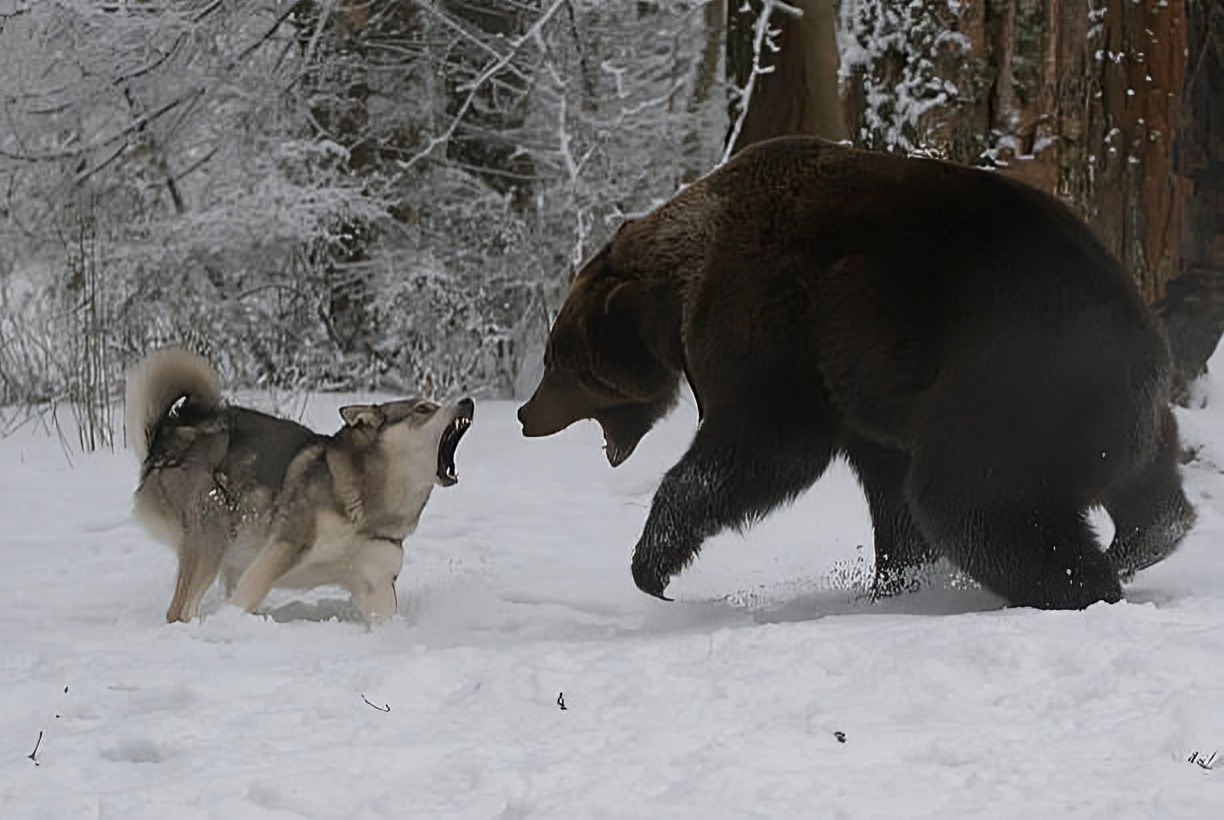When dogs see a bear, their reactions can range from curiosity and excitement to fear and aggression. Understanding these behaviors is crucial for ensuring the safety of both your dog and the bear.
Encountering a bear while out with your dog can be a nerve-wracking experience. Dogs, with their keen senses and protective instincts, often react strongly to the presence of a bear. This article delves into the various behaviors dogs exhibit when they see a bear, why they react the way they do, and how you can manage such encounters safely.
Why Do Dogs React to Bears?
Dogs have a heightened sense of smell and hearing, which makes them highly sensitive to the presence of wildlife, including bears. When a dog senses a bear, it may exhibit behaviors such as sniffing the air, becoming alert, and showing signs of anxiety or excitement. These reactions are driven by a combination of curiosity, territorial instincts, and protective behavior towards their owners.
Common Reactions of Dogs to Bears
- Barking and Growling: Many dogs will bark or growl when they see a bear. This is a natural response to a perceived threat and is meant to warn the bear to stay away.
- Whimpering and Whining: Some dogs may whimper or whine out of fear or anxiety. This is more common in smaller or less confident dogs.
- Aggressive Behavior: In some cases, dogs may become aggressive, attempting to chase or confront the bear. This can be extremely dangerous as it may provoke the bear.
- Running Away: Conversely, some dogs may try to flee from the bear, especially if they feel overwhelmed or scared.
- Standing Ground: Certain breeds, particularly those with strong protective instincts, may stand their ground and try to shield their owners from the bear.
How to Handle a Bear Encounter with Your Dog
- Stay Calm: Your dog will take cues from your behavior. Staying calm can help keep your dog calm as well.
- Leash Your Dog: If your dog is off-leash, quickly and calmly put them on a leash. This helps prevent them from running towards or away from the bear.
- Back Away Slowly: Do not run. Slowly back away from the bear while keeping your dog close to you.
- Avoid Eye Contact: Bears may perceive direct eye contact as a threat. Keep your eyes on the bear without staring directly at it.
- Make Yourself Big: If the bear approaches, try to make yourself appear larger by raising your arms and standing tall. Speak in a firm, calm voice to deter the bear.
- Use Bear Spray: If you have bear spray, use it as a last resort if the bear gets too close.
Preventing Bear Encounters
- Stay on Trails: Stick to well-traveled trails where bears are less likely to be present.
- Make Noise: Talk, sing, or clap your hands to alert bears to your presence and give them a chance to avoid you.
- Avoid Bear Habitats: Be aware of areas where bears are known to live and avoid them, especially during peak activity times such as dawn and dusk.
- Secure Food: Bears are attracted to food. Ensure that all food and scented items are securely stored and out of reach.
Conclusion
Understanding how dogs react to bears and knowing how to handle such encounters can make a significant difference in ensuring the safety of both your dog and the bear. By staying calm, keeping your dog leashed, and following the recommended steps, you can navigate these situations more safely.
The photo featured below the post headline is Credit: Aleksey-Krylov/istockphoto
I hope you find this post helpful and informative. If Yes’ feel free to share it with your friends!
Frequently Asked Questions
Can dogs sense bears before seeing them?
Yes, dogs can often sense bears through their keen sense of smell and hearing before actually seeing them.
What should I do if my dog runs towards a bear?
Try to call your dog back calmly and firmly. Do not chase after your dog, as this may provoke the bear further.
Are certain dog breeds more likely to react aggressively to bears?
Yes, breeds with strong protective instincts, such as shepherds and guard dogs, may be more likely to react aggressively.
Is it safe to hike with my dog in bear country?
It can be safe if you take proper precautions, such as keeping your dog on a leash, making noise, and avoiding known bear habitats.

